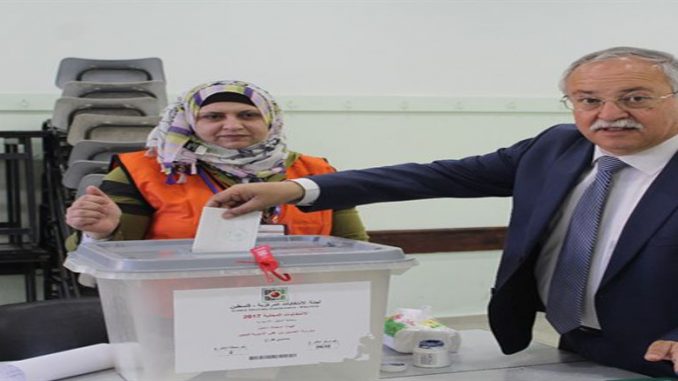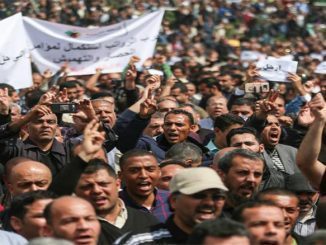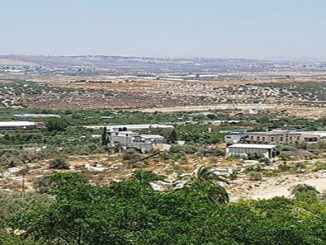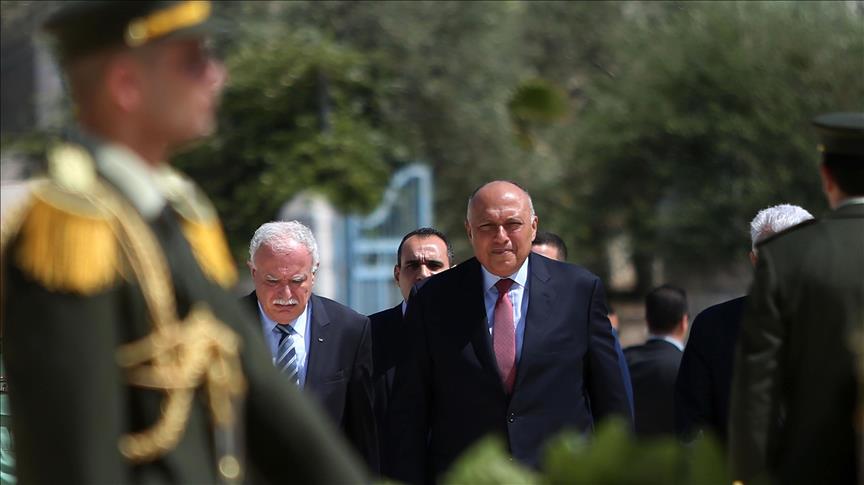
The Palestinian Central Elections Committee (CEC) released on Sunday results for municipal council elections which took place a day prior across the occupied West Bank.
According to CEC chairman Hanna Nasser, voter turnout stood at 53.4 percent — as 420,682 of 787,386 eligible voters headed to the polls in 145 municipalities.
According to reports on Saturday evening, voter turnout was lower in big cities compared to villages and rural areas.
The lowest turnout was registered in the Nablus district, with only 28 percent of registered voters heading to the polls, although CEC said voting hours were extended for Samaritans, who observe the sabbath on Saturdays.
Nasser said on Sunday that 1.3 percent of voters cast white ballots, while 2.75 percent of votes were null.
Lists that were not officially tied to any political parties won 65 percent of contested municipal council seats during the election, while official political party lists obtained 35 percent of seats.
The participation rate was virtually the same as in the 2012 and 2005 locals elections, which political analyst Talal Akel told Ma’an at the time was a sign of Palestinians’ frustration with political parties and the Palestinian Authority (PA). Since then, anti-PA sentiment has continued to grow, leading a number of factions to boycott the elections, including Hamas, Islamic Jihad, and the Popular Front for the Liberation of Palestine (PFLP).
As a result, only certain political parties were officially represented in the elections that were called for by the Fatah-dominated PA.
While the “National Liberation and Constructiveness” blocs are officially tied to Fatah, some lists with names such as “Baladi” or “Baladna” — “my town” or “our town” — are traditionally tied to the PFLP.
Despite its boycott, Hamas encouraged Palestinians to cast their votes for “the most competent” candidates, acknowledging the “crucial role” local councils in the West Bank have in confronting Israeli policies and providing the basic services to the Palestinian people.
A dispute erupted following the preliminary announcement of results in the Ramallah-area village of Deir Abu Mashaal, leading five Palestinians to be injured.
Nasser said that CEC had already addressed all “normal” complaints, and that final results could be contested within two weeks in accordance with Palestinian law.
The CEC added that electoral lists won automatically in another 181 municipalities after running unopposed, while 65 localities had no nominated electoral lists at all.
Saturday’s local elections were initially scheduled to be held in October, but were postponed, following backlash over a PA Supreme Court ruling to exclude the Gaza Strip from the elections altogether.
Prior to their cancellation, the municipal elections had been set to be the first in the Gaza Strip in a decade, after Hamas’ victory in the 2006 vote erupted into a violent conflict between Hamas and Fatah, as both groups attempted to take control of the besieged coastal enclave.
The elections only took place in the West Bank, as Hamas, the de facto leading party of the besieged Gaza Strip, rejected the legitimacy of the elections.
The PA called for elections in both the West Bank and the Gaza Strip, but Hamas promptly rejected the plan, saying that elections should only take place after the more than decade-long rivalry between Hamas and Fatah came to an end and reconciliation was achieved.
Nasser reportedly expressed hope on Saturday that local elections could still be held in Gaza at a later date.
The PA was meanwhile prohibited from carrying out elections in occupied East Jerusalem, annexed by Israel following the 1967 military takeover of the Palestinian territory.
Palestinian refugees registered with UNRWA — the UN agency responsible for providing services to some five million Palestinian refugees — and residing in refugee camps across the West Bank are also barred from voting in elections.
According to Palestinian rights group BADIL, Palestinian refugees residing outside refugee camps are permitted to vote in national legislative council and municipal elections, while those residing in the camps are only allowed to participate in national elections.



